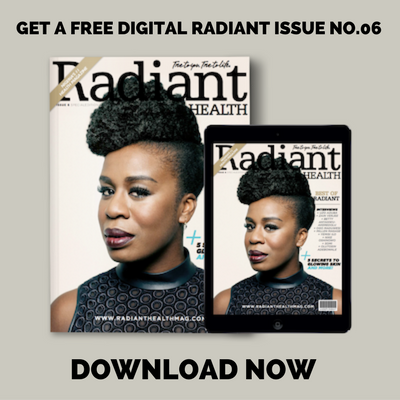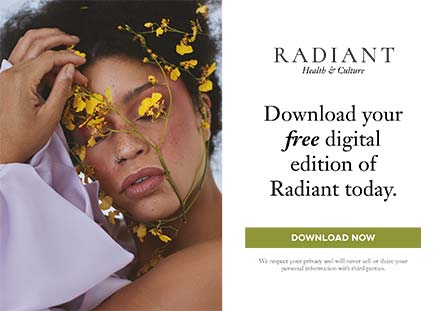Breast Cancer Survivor VeRitta Smith on Self Care And Finding Purpose in the Midst of the Storm
By Chinyere AmobiPublished: February 13, 2019
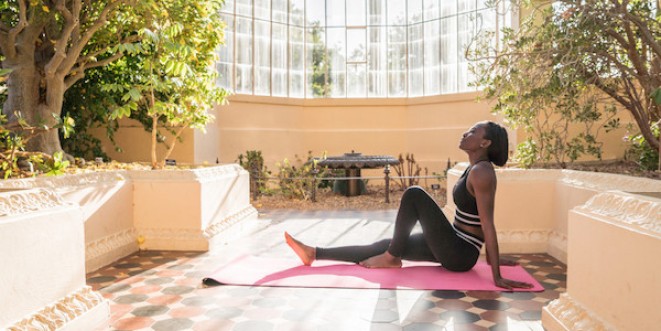
Although the news didn’t make waves, in 2018 Black women were classified as a high-risk group for breast cancer for the first time ever. Despite our incidences of the disease being about the same as white women, Black women are nearly twice as likely to die from breast cancer, and more likely to be diagnosed at a later, harder to treat stage.
For Black women, whose self-care and personal health often take a backseat to the seemingly endless demands of family, career, and “keeping it all together,” this can be deadly news.
So, as the world celebrated World Cancer Day last week, I immediately thought of my aunt-in-law VeRitta Smith, and the grace with which she has faced stage IV metastatic breast cancer since 2012. The last thing on her mind was slowing down when she noticed a lump in her right breast at age 48.
An independent transformative legal mediator and facilitator working for the Office of the County Counsel in Los Angeles at the time, cancer quickly transformed days consumed by meeting deadlines, chasing promotions, and trying to please her supervisors to a new, more intentional form of living.
She graciously agreed to share her story of how she believes cancer has served as a bittersweet reminder to herself and others of the importance of slowing down, finding your purpose, and listening to your body when she speaks to you. A yoga and fitness instructor, VeRitta now travels the world spreading her gospel of self-care and purpose-driven living.
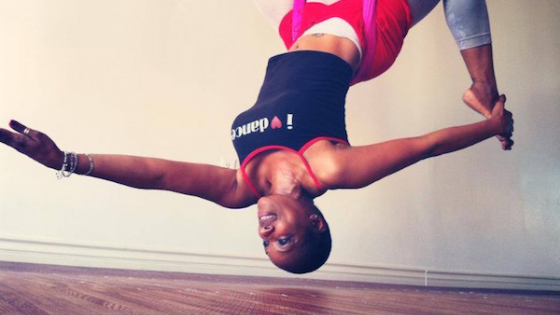
Walk us through your initial diagnosis. How did you find out?
I was notoriously busy before I was diagnosed on July 31, 2012. I remember feeling a lump in my right breast and making a doctor’s appointment, but putting it off. When I did go in, after maybe four to five months, maybe longer, I had to have a biopsy, and that’s when they discovered it was cancer.
They immediately gave me steroids to try to slow it down, and I decided to get a bilateral mastectomy after doing research and finding that it often comes back to the opposite breast. They also removed all my underarm lymph nodes to prevent the cancer from spreading.
After my breast surgery, my younger sister stepped in as my caregiver, because I couldn’t take care of myself, and I couldn’t drive because it hurt to move my upper torso. She had to drain the excess fluid from my breast, wrap them every day, and cook for me, all while running home to take care of her own family. I don’t know what I would have done without her.
I thought was doing great with the treatment for a while, until I got a phone call one day from my doctor saying I needed to go to the emergency room right away, because they had seen something in my spine.
I had already gone through losing my breasts and managing lymphedema. I was exhausted by the time I got that phone call, and just wanted to take a break from being poked, prodded, and examined by doctors and nurses.
When I asked my oncologist what’s the worst that could happen if I delayed additional treatment for just one day, she replied, “You’re a dance instructor, right? You can be up there teaching, and you could just collapse, and never get back up.”
I’m glad I listened to my doctor’s advice, because I later discovered that this silent cancer had already spread to my spine and needed to be treated immediately.
What followed next for VeRitta were grueling rounds of “Radiation Vacation,” where she received daily radiation while living next to her hospital. Through the rigors of the treatment she gradually transitioned from hobbling back and forth with a cane, to power walking to her last radiation session. After this came numerous rounds of chemotherapy, with the added side effects of anemia, fatigue, hair loss, nausea and vomiting.
I’ve had six surgeries, and now I’m on chemotherapy, but recovery is the real beast. One day I had just fallen and couldn’t get up, and I was at home by myself. After that setback, I had to do rehabilitation to learn to walk again from a wheelchair in a little nursing home. But I even made that fun. I would roll around and make the best of it.
The subconscious mind is so strong. If you say you’re dying and you can’t take this, your body is going to react that way. I would have everyone in the nursing home doing my exercises in their wheelchairs. I’m always looking to help show people that there’s a way you can go through these things and be positive. It could always be a lot worse, but you can focus on what you’re grateful for.
I eventually rolled out of that nursing home and went back home. I had to do things on my own, crawling up the stairs, and scooting down. It took a while, but I was home, and it was an adventure.
You never know with metastatic breast cancer what your life is going to be like, and each day can feel like a roller coaster.
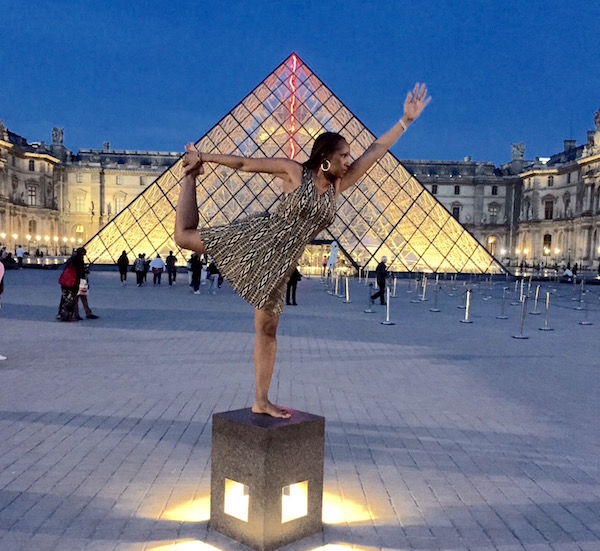
Do you feel like Black women experience cancer, or are treated any differently throughout treatment, than other women?
I think my experience has been more general, but only because I went through that already. Before my diagnosis, I had about ten fibroids (some as large as cantaloupes) that needed to be removed, and my doctors initially didn’t want to remove them. They just wanted to take my uterus out, because I was 40-something.
At the time, I was not sure if I still wanted to have children, so I refused to have a hysterectomy. In my research, I found that Black women get a lot of fibroids so they treat us a certain kind of way. Simply because it’s costlier to take out fibroids, compared to taking out a uterus.
Because of my earlier experiences, I already knew I’d have to fight for my body, and make my own choices, to make sure I got treated like everyone else.
RELATED: Jelilat’s Story: Surviving Triple Negative Breast Cancer
What were your main fears after your diagnosis? Did these fears shift or morph over time?
Before my diagnosis, I let fear stop me from doing a lot of things. Initially, they told me I could have five to ten years to live, depending on how I lived my life. So, my fear was dying without people really knowing who I am, and not sharing what talents God has given me. I wanted to live my life for me, rather than for other people.
I had been so stressed, working for the Office of the County Counsel. We had already lost three other women in the office to cancer in the last ten years; I’m the only one still alive. Stress can be deadly, and people don’t understand that. But if you don’t listen to your body, it will shut you down. Your body warns you; we just don’t listen, myself included. The lifestyle I was living was all work and no play, never taking time off to relax and breathe and be mindful.
So, my fear was dying without telling people my story: don’t go through what I went through, just live vicariously through me.
And of course, I was scared of leaving my family. They’re my motivation to keep going when things are hard. When I feel like I can’t go on I look to God to carry me and be the strength I need to keep fighting.
Cancer already had a large presence in your family, due to your mother dying from the disease. How do you think this affected how you took your diagnosis, and how you approached your condition?
I never thought about it like that, but it gave me strength. My mother’s cancer had spread all over her body by the time she found out, and she knew, but didn’t want to burden us. Her doctors told us all we could do is plan for her funeral.
In my family, we’re all so independent, and we try to keep things to ourselves and do it on our own. After seeing what my mother went through, I knew I didn’t want to go through that. There’s no way you can fight this without the help of family and friends. You have your doctors and nurses and that’s wonderful, but you can’t do it without your support system.
We prayed and we took her home and put her on a clean diet, which is why I already knew how to live holistically. We cared for her and she lived maybe over a year and half and was able to enjoy life. But I learned from her that you don’t give up, you keep fighting, and you keep going.
When the cancer went to my spine, I had to lay myself on my mother’s grave and say ‘Help me.’ Because my sister and I were the main people to take care of her, and that stays with you.
Metastatic cancer seems to be managed more like a chronic disease. Can you talk about some of the strategies you routinely use to arm yourself to get through the day?
I start with prayer. I have affirmations that I say every day, and I get centered by meditating. Also, yoga. You have to stretch your body. It takes me two to three hours sometimes to get out of the house. Because I know that once I step out of the door, I may not sit down from 7 a.m. to 7 p.m.
If I don’t get centered in the morning, it might not happen all day. But I also have strategies for how to get it in on the go. In the elevator, I might get into a dancer’s pose. Sometimes I just push myself away from my computer and I do chair poses. I have to get my stretches in, because it releases all those toxins, it makes me feels good, and it centers me.
RELATED: When Cancer Comes Knocking: Jelilat’s Story
How did you feel about the more cosmetic aspects of your treatment, and how did you maintain your sense of self throughout these changes?
I understand now why they tell you to shave your hair before it all falls off. I woke up one day and touched my head, and it was like I had a toupee on. All my hair just came off. It didn’t even hurt: I’d just jumped out of the shower with my hair tied up, and when I took my head scarf off and rubbed my scalp, all my hair came off.
I had somewhere to go that day, so I put it right back on tied a scarf around it, and just did what I had to do to make sure nobody touched my head. When I came home I was ready, and I took the scarf off and my hair was all gone. My sister and I went and got some wigs for me to wear after that. It was very emotional.
Your hair is your crowning glory. And then not to have that, and to have lost my breasts, that was humiliating. You can go into depression. That’s why I stayed prayed up from morning until night.
I couldn’t allow any negativity or toxic people into my life. I just tried to keep all my senses positive. Laughter has also been great medicine. I like to find something every day that makes me laugh for at least one to three hours. And when I was sad, angry, or happy, music saved me. The power of dance is so strong in what you can really release.
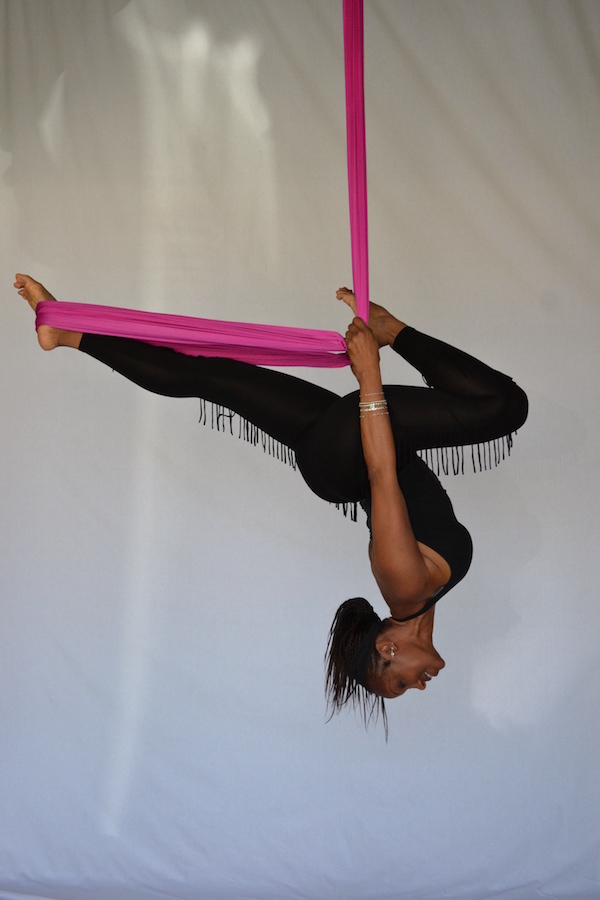
Each time I saw you during your treatment time, you looked radiant. With chronic disease, how do you communicate that although you may look well, you might not be and might need extra compassion?
My oncologist has told me that hopefully I can be a voice for others, that just because it might not look like something’s going on from the outside, you have no idea what’s going on within. When people see me on the outside, I know I don’t look like I have metastatic cancer, but this is by God’s grace.
That’s one of the most difficult things: people see the outside and don’t realize what you go through to get up in the morning when you’re dealing with a chronic disease. I can’t always do the things I once did, even though I look like I can. So, I have to take care of me first before I go into the outside world.
My mom always used to say put on the armor of God. It’s the same thing when it comes to self-care. I learned that once I was diagnosed. I learned to say no. That’s why I sometimes say that this cancer was bittersweet to me, because I used to never say no, just like a lot of women.
But you need to find your version of self-care, whatever that may be to you: taking a walk, gardening, reading a book, you find your happy and take care of yourself.
Thanks so much for sharing your story. Are there any updates on your current health status?
The cancer is currently stable in my spine, although a small mass has moved to my lungs, which my doctors are monitoring. With my condition, it metastasizes, so it will eventually move all over your body, but they have medicine now to stop it from progressing. It really depends on your lifestyle, whether you’re taking your medication, your nutrition, etc.
I’ve been able to travel all over the world teaching yoga and giving my testimony, and I didn’t have the drive to do that until I was diagnosed. I live life boldly now. God has me. I could only get that through God’s strength, not my own.
Put your health first. Learn from me. I’m still learning.
VeRitta can be found teaching specialty classes and workshops at wellness studios in South Bay, California, including End Results Health Wellness Center (Picture of Health), Redondo Beach Cancer Community and Yoga Remedy’s Essential Wellness studio. You can also follow her journey on Instagram.
Like what you're reading? Sign up for our free newsletter and never miss a post! Plus get a FREE digital version of our Issue No.10 with sign up.

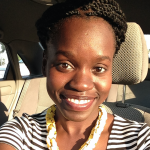
- Black Women Share Their Experiences with High Blood Pressure - September 24, 2021
- Breast Cancer Survivor VeRitta Smith on Self Care And Finding Purpose in the Midst of the Storm - February 13, 2019
- Filmmaker Adeyemi Michael Reimagines the Immigrant Narrative While Paying Tribute to His Mother in the Captivating Short Film, “Entitled” - May 8, 2019
- For Us, By Us: BLK + GRN Puts Natural Care Products for Black Women on the Map - May 2, 2019
- Flying Over 50: How Pole Dancing Helped 58-year Old Makeda Smith Reclaim Her Life - January 16, 2019
- Playwright Ngozi Anyanwu taps into her Nigerian-American upbringing for a play on grief and healing - October 19, 2018
- Cameroonian filmmaker Cyrielle Raingou on her upcoming documentary and her country on the brink of civil war - November 7, 2018
- Are Women ‘Hormonal?’ Yes, And So Is Everyone Else! - May 23, 2019
- How The All of Us Research is Restoring Trust and Bringing A Much-Needed Diversity to Medical Research - April 10, 2019
- Getting behind youth in the fight against HIV/AIDS in Nigeria - March 6, 2019




